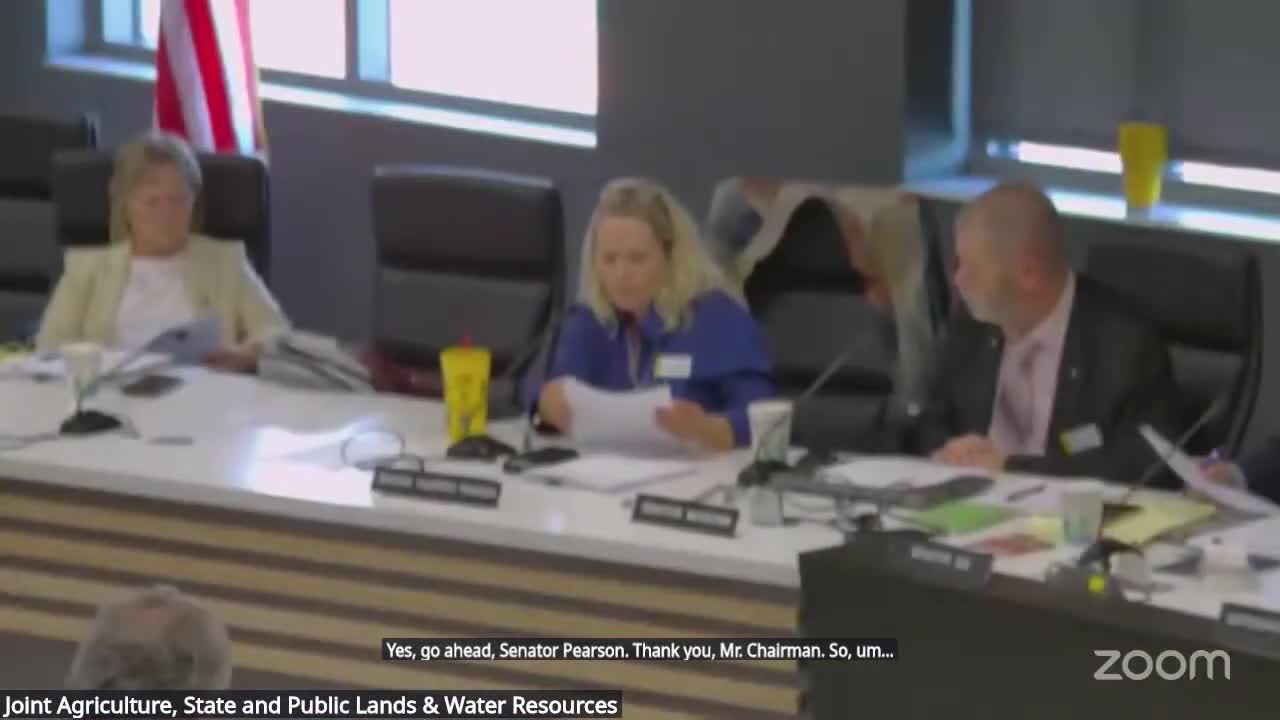
This article was created by AI using a video recording of the meeting. It summarizes the key points discussed, but for full details and context, please refer to the video of the full meeting. Link to Full Meeting
One of the key topics was a proposal to extend the duration of cloud seeding programs from two years to ten years. Proponents argued that a longer timeframe would allow for more comprehensive data collection and better understanding of the program's effectiveness. Representative Schmidt, who initially supported a two-year limit, expressed concerns that this duration might not be sufficient given the decades of cloud seeding history in Wyoming.
Several legislators voiced their support for cloud seeding, citing evidence from municipalities that have benefited from the practice. Representative Eklund emphasized the critical water situation in the Colorado River Basin, arguing that limiting cloud seeding would hinder the state's ability to manage its water resources effectively. He warned against removing tools from the state engineer's toolbox, which could jeopardize Wyoming's water rights amidst competing demands from neighboring states.
Conversely, some legislators raised concerns about the lack of definitive evidence regarding the effectiveness of cloud seeding. Senator Wright pointed out that despite significant investment over the years, there remains uncertainty about the outcomes of cloud seeding efforts. This skepticism led to calls for more research before committing to long-term cloud seeding initiatives.
The meeting also introduced a proposal for the Wyoming Clean Air Preservation Act, aimed at regulating geoengineering activities within the state. This legislation seeks to prohibit unauthorized atmospheric interventions, including cloud seeding, unless they are conducted under strict regulations. Proponents argue that this measure is essential for protecting public health and the environment, while critics question the need for such prohibitions without a clear understanding of the practices involved.
As the discussions unfolded, it became evident that the community's concerns about environmental health and water resource management are at the forefront of legislative priorities. The outcomes of these proposals could significantly impact Wyoming's approach to managing its natural resources and addressing the challenges posed by climate change.
Moving forward, the legislature will need to balance the need for innovative water management strategies with the public's health and environmental safety, ensuring that any actions taken are backed by solid scientific evidence and community support.
Converted from Joint Agriculture, State and Public Lands & Water Resources, August 28, 2025 - PM meeting on August 29, 2025
Link to Full Meeting
Comments
View full meeting
This article is based on a recent meeting—watch the full video and explore the complete transcript for deeper insights into the discussion.
View full meeting